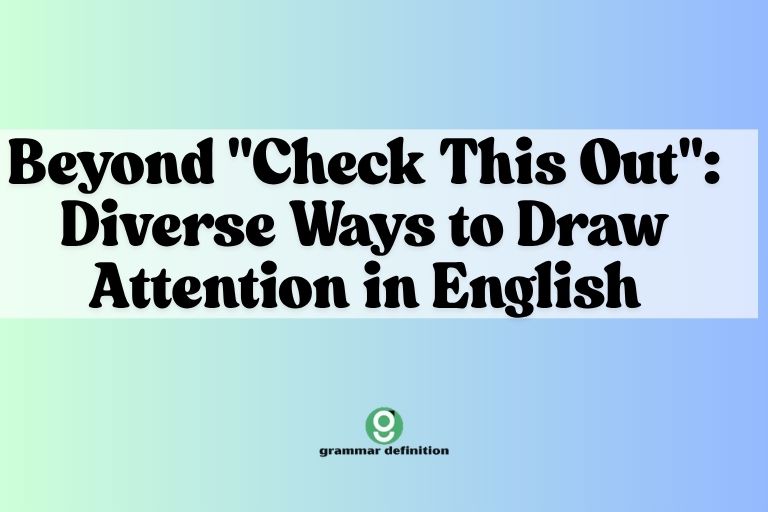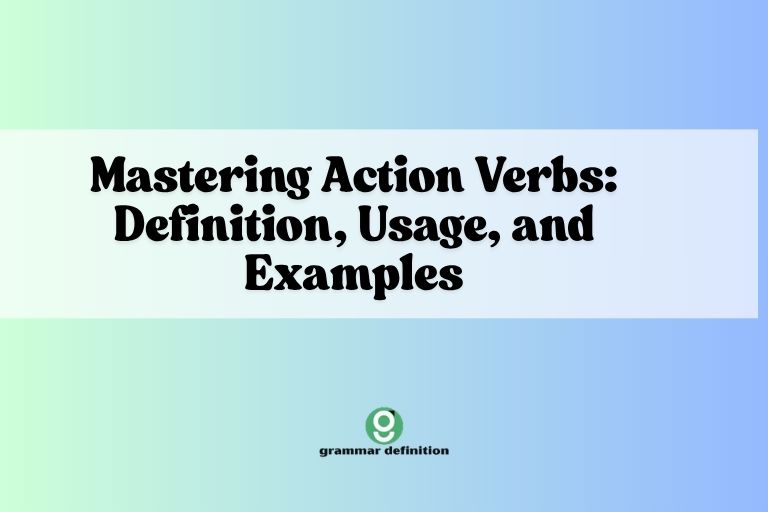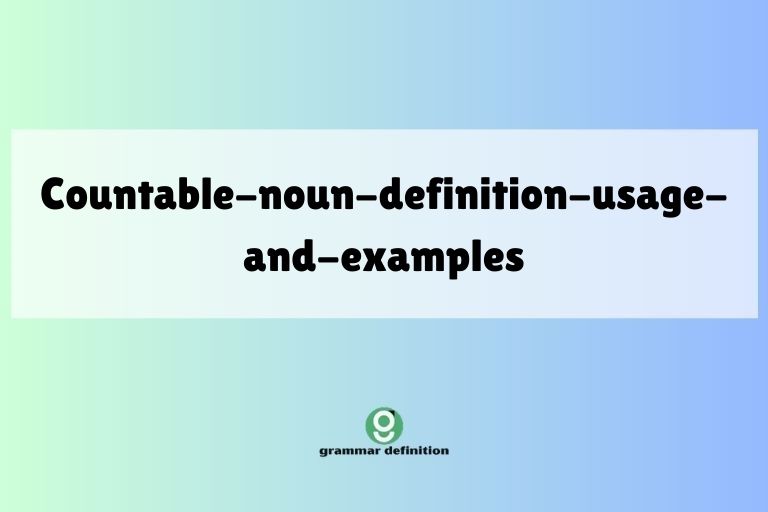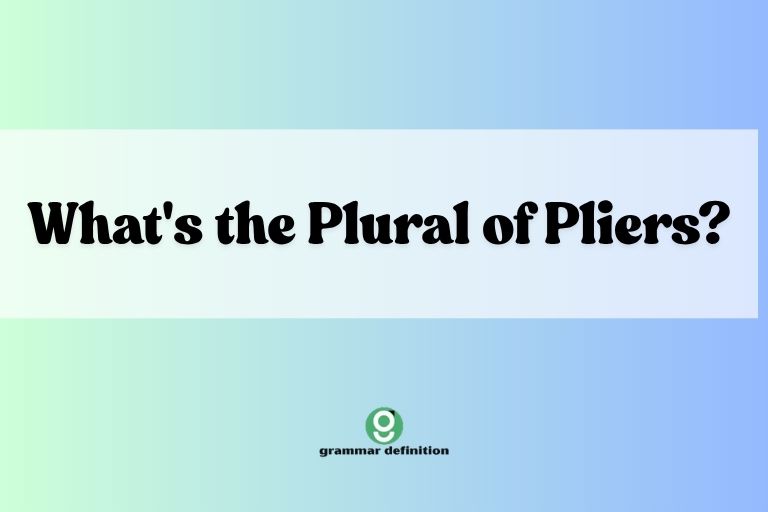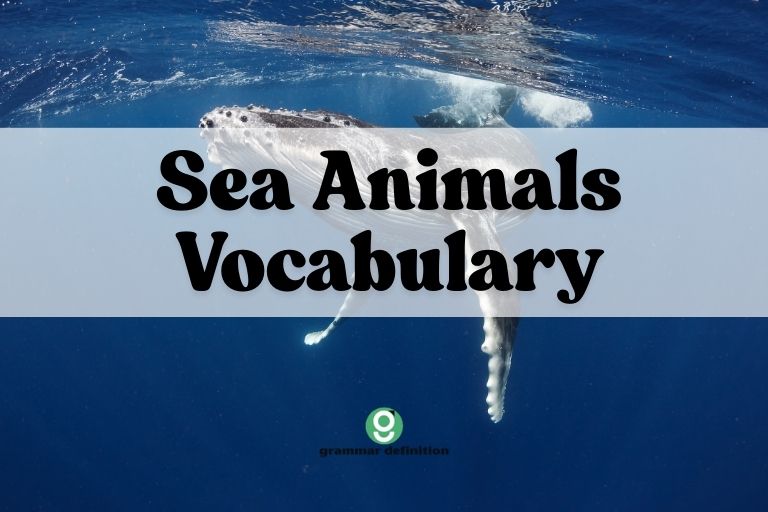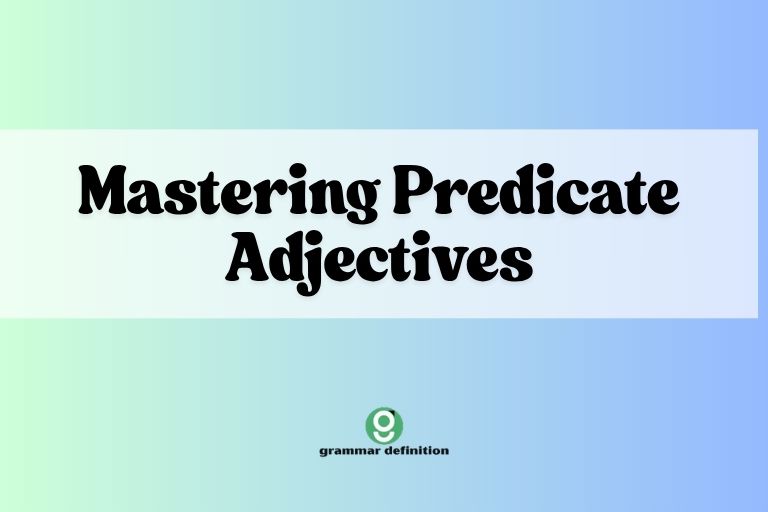Understanding Subordinate Clauses: Definition, Usage, and Examples
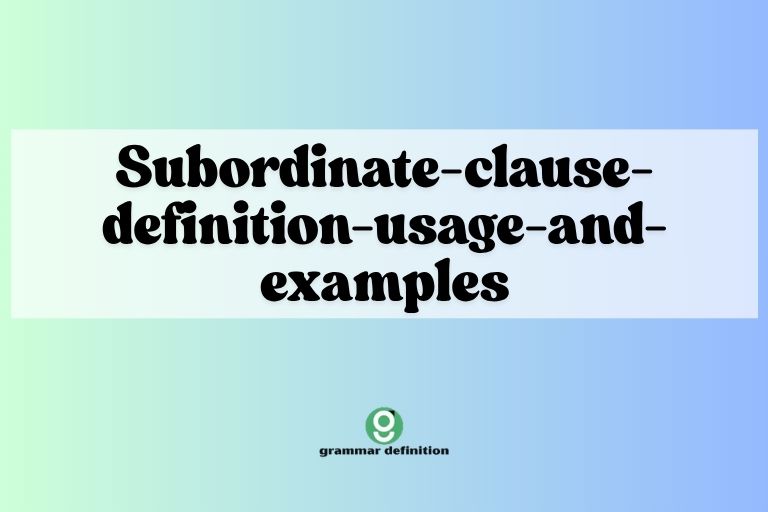
Subordinate clauses are a fundamental building block of complex sentences, allowing for the expression of nuanced relationships between ideas. Mastering their use is crucial for both effective writing and comprehension.
This article provides a comprehensive guide to subordinate clauses, covering their definition, structure, types, and usage rules. Whether you’re a student, writer, or simply looking to improve your English grammar, this guide will equip you with the knowledge and practice you need to confidently use subordinate clauses.
This article is designed for English language learners of all levels, from intermediate to advanced. It will be particularly helpful for those preparing for standardized tests, writing academic papers, or simply aiming to communicate more effectively in English.
By the end of this article, you’ll be able to identify, analyze, and use subordinate clauses with accuracy and confidence.
Table of Contents
- Definition of a Subordinate Clause
- Structural Breakdown
- Types of Subordinate Clauses
- Examples of Subordinate Clauses
- Usage Rules
- Common Mistakes
- Practice Exercises
- Advanced Topics
- Frequently Asked Questions
- Conclusion
Definition of a Subordinate Clause
A subordinate clause, also known as a dependent clause, is a clause that cannot stand alone as a complete sentence. It depends on a main clause (also known as an independent clause) to form a complete thought. Think of it as a piece of a sentence that needs another piece to make sense. Subordinate clauses provide additional information, context, or detail to the main clause.
Unlike a main clause, which expresses a complete thought and can stand alone as a sentence, a subordinate clause begins with a subordinating conjunction (e.g., because, although, if, when, since) or a relative pronoun (e.g., who, which, that, whom, whose). These words connect the subordinate clause to the main clause and indicate the relationship between them.
Subordinate clauses function as nouns, adjectives, or adverbs within the larger sentence. This functional role determines the type of subordinate clause.
For example, a subordinate clause acting as a noun is called a noun clause, while one modifying a noun is called an adjective clause (or relative clause), and one modifying a verb, adjective, or adverb is called an adverb clause.
Structural Breakdown
The structure of a subordinate clause typically consists of the following elements:
- Subordinating Conjunction or Relative Pronoun: This word introduces the clause and connects it to the main clause. Examples include because, if, when, that, who, which.
- Subject: The noun or pronoun that performs the action or is described in the clause.
- Verb: The action or state of being in the clause.
- Optional Complements: These include objects, complements, and modifiers that provide additional information about the subject or verb.
The order of these elements can sometimes vary, especially in questions or when certain elements are emphasized. However, the presence of a subordinating conjunction or relative pronoun is a defining characteristic of a subordinate clause.
Here’s a simple example to illustrate the structure:
Because it was raining, we stayed inside.
In this example:
- Because is the subordinating conjunction.
- It is the subject.
- Was raining is the verb.
Types of Subordinate Clauses
Subordinate clauses are classified into three main types based on their function within the sentence: noun clauses, adjective clauses (relative clauses), and adverb clauses. Each type plays a distinct role in providing information and adding complexity to sentences.
Noun Clauses
A noun clause functions as a noun within the main clause. It can act as a subject, object, complement, or appositive. Noun clauses are often introduced by words like that, what, who, whom, which, whoever, whomever, whichever, whether, if, how, when, where, why.
For example:
What he said surprised everyone.
In this sentence, the noun clause “What he said” acts as the subject of the verb “surprised.”
Adjective Clauses (Relative Clauses)
An adjective clause, also known as a relative clause, modifies a noun or pronoun in the main clause. It provides additional information about the noun it modifies. Adjective clauses are typically introduced by relative pronouns (who, whom, which, that, whose) or relative adverbs (where, when, why).
For example:
The book that I borrowed from the library is very interesting.
In this sentence, the adjective clause “that I borrowed from the library” modifies the noun “book.”
Adverb Clauses
An adverb clause modifies a verb, adjective, or adverb in the main clause. It provides information about time, place, reason, manner, condition, concession, purpose, or result. Adverb clauses are introduced by subordinating conjunctions such as because, although, if, when, since, while, before, after, until, unless, as, so that, in order that, where, wherever.
For example:
Because it was raining, we stayed inside.
In this sentence, the adverb clause “Because it was raining” modifies the verb “stayed” and provides the reason for staying inside.
Examples of Subordinate Clauses
To further illustrate the different types of subordinate clauses, here are several examples organized by category. These examples will help you to identify and understand how each type of clause functions within a sentence.
Noun Clause Examples
The following table provides examples of noun clauses functioning as different parts of a sentence, such as subject, object, complement, and appositive. Understanding these different functions will help you to recognize noun clauses in various contexts.
| Function | Example Sentence | Noun Clause |
|---|---|---|
| Subject | What she said was surprising. | What she said |
| Subject | How he did it remains a mystery. | How he did it |
| Subject | Whether he will come is uncertain. | Whether he will come |
| Direct Object | I don’t know what he wants. | what he wants |
| Direct Object | She told me that she was tired. | that she was tired |
| Direct Object | They announced who had won the prize. | who had won the prize |
| Indirect Object | Give whoever needs it a blanket. | whoever needs it |
| Predicate Nominative (Complement) | The problem is that we don’t have enough time. | that we don’t have enough time |
| Predicate Nominative (Complement) | My belief is that everyone deserves a chance. | that everyone deserves a chance |
| Appositive | The rumor that he is leaving is false. | that he is leaving |
| Appositive | The question whether we should go is still being debated. | whether we should go |
| Subject Complement | This is what I’ve been waiting for. | what I’ve been waiting for |
| Subject Complement | The issue is how we can resolve this problem. | how we can resolve this problem |
| Object of a Preposition | I am worried about what might happen. | what might happen |
| Object of a Preposition | Pay attention to what the teacher says. | what the teacher says |
| Object of a Preposition | He is interested in how the brain works. | how the brain works |
| Delayed Subject | It is not clear why she left. | why she left |
| Delayed Subject | It is important that everyone participates. | that everyone participates |
| Direct Object | I wonder if he will be on time. | if he will be on time |
| Subject | What you do is your responsibility. | what you do |
As shown in the table above, noun clauses can take on various roles within a sentence. Recognizing these roles will improve your understanding of sentence structure and grammar.
Adjective Clause Examples
Adjective clauses, also known as relative clauses, modify nouns or pronouns, providing additional information. The following table contains examples of adjective clauses introduced by relative pronouns (who, whom, which, that, whose) and relative adverbs (where, when, why).
| Relative Pronoun/Adverb | Example Sentence | Adjective Clause | Noun Modified |
|---|---|---|---|
| who | The man who helped me is my neighbor. | who helped me | man |
| who | She is the artist who painted this portrait. | who painted this portrait | artist |
| whom | The person whom I saw was very tall. | whom I saw | person |
| whom | The candidate whom the committee selected is highly qualified. | whom the committee selected | candidate |
| which | The car which I bought is very reliable. | which I bought | car |
| which | The book which she recommended was excellent. | which she recommended | book |
| that | The movie that we watched was boring. | that we watched | movie |
| that | The song that he wrote became a hit. | that he wrote | song |
| whose | The student whose essay won received a prize. | whose essay won | student |
| whose | The author whose book I read is very talented. | whose book I read | author |
| where | The restaurant where we ate was excellent. | where we ate | restaurant |
| where | This is the town where I grew up. | where I grew up | town |
| when | I remember the day when we first met. | when we first met | day |
| when | The time when she arrived was quite late. | when she arrived | time |
| why | I don’t know the reason why she left. | why she left | reason |
| that | The idea that she proposed was innovative. | that she proposed | idea |
| which | The house, which had a large garden, was perfect for them. | which had a large garden | house |
| who | My sister, who is a doctor, works at the local hospital. | who is a doctor | sister |
| whose | The company, whose profits have increased, is expanding. | whose profits have increased | company |
| where | The park, where we often go for walks, is beautiful. | where we often go for walks | park |
Adjective clauses add detail and specificity to sentences, making them more informative and engaging. They are essential for creating vivid descriptions and providing context.
Adverb Clause Examples
Adverb clauses modify verbs, adjectives, or adverbs, providing information about time, place, reason, manner, condition, concession, purpose, or result. The following table provides examples of adverb clauses introduced by various subordinating conjunctions.
| Subordinating Conjunction | Type | Example Sentence | Adverb Clause |
|---|---|---|---|
| because | Reason | Because it was raining, we stayed inside. | Because it was raining |
| since | Reason | Since he was tired, he went to bed early. | Since he was tired |
| as | Reason | As it was getting late, we decided to leave. | As it was getting late |
| if | Condition | If it rains, we will cancel the picnic. | If it rains |
| unless | Condition | Unless you hurry, you will miss the bus. | Unless you hurry |
| when | Time | When I finish work, I will go to the gym. | When I finish work |
| while | Time | While I was walking, I saw a friend. | While I was walking |
| before | Time | Before you leave, please close the windows. | Before you leave |
| after | Time | After the movie ends, we will go for dinner. | After the movie ends |
| until | Time | We will wait until the rain stops. | until the rain stops |
| although | Concession | Although it was difficult, she succeeded. | Although it was difficult |
| though | Concession | Though he was nervous, he gave a great speech. | Though he was nervous |
| even though | Concession | Even though it was expensive, I bought it. | Even though it was expensive |
| where | Place | Where there’s a will, there’s a way. | Where there’s a will |
| wherever | Place | Wherever you go, I will follow you. | Wherever you go |
| as | Manner | Do as I say. | as I say |
| so that | Purpose | He studied hard so that he could pass the exam. | so that he could pass the exam |
| in order that | Purpose | She exercised regularly in order that she would stay healthy. | in order that she would stay healthy |
| as…as | Comparison | He is not as tall as his brother. | as tall as his brother |
| than | Comparison | She is smarter than I thought. | than I thought |
Adverb clauses add depth and context to sentences, providing essential details about when, where, why, and how actions occur. They are critical for expressing complex ideas and relationships.
Usage Rules
When using subordinate clauses, it’s important to follow certain rules to ensure grammatical correctness and clarity:
- Punctuation: Use a comma to separate a subordinate clause from the main clause when the subordinate clause comes before the main clause. If the subordinate clause comes after the main clause and is essential to the meaning of the sentence, a comma is generally not needed.
- Subject-Verb Agreement: The verb in the subordinate clause must agree with its subject in number and person.
- Tense Consistency: Maintain consistent verb tenses between the main clause and the subordinate clause, particularly when describing events that occur at different times.
- Pronoun Agreement: Pronouns within the subordinate clause must agree in number and gender with the nouns they refer to.
- Correct Subordinating Conjunctions/Relative Pronouns: Use the appropriate subordinating conjunction or relative pronoun to accurately convey the intended relationship between the clauses.
Here are some examples illustrating these rules:
- Correct: Because it was raining, we stayed inside. (Comma used because the adverb clause comes first)
- Correct: We stayed inside because it was raining. (No comma needed because the adverb clause comes last and is essential)
- Incorrect: We stayed inside, because it was raining. (Comma is sometimes optional if the reason is an afterthought, but generally omitted if essential)
- Correct: The book that I read was interesting. (Relative pronoun “that” correctly introduces the adjective clause)
- Incorrect: The book who I read was interesting. (Incorrect relative pronoun)
Common Mistakes
One of the most common mistakes is using a comma incorrectly. Remember, if the subordinate clause comes before the main clause, use a comma.
If it comes after and is essential to the sentence’s meaning, generally no comma is needed.
Another mistake is using the incorrect subordinating conjunction or relative pronoun. Make sure the word you choose accurately reflects the relationship you want to convey.
Additionally, ensure that your verb tenses are consistent and that your pronouns agree with their referents.
The following table illustrates some common mistakes and their corrections:
| Incorrect | Correct | Explanation |
|---|---|---|
| Because it rained, I stayed home. | Because it was raining, I stayed home. | Adding “was” clarifies the continuous action. |
| The book, that I read, was good. | The book that I read was good. | Unnecessary commas removed; the clause is restrictive. |
| I like the person who’s car is red. | I like the person whose car is red. | Correct use of “whose” to show possession. |
| Although he is tired, but he kept working. | Although he is tired, he kept working. OR He is tired, but he kept working. | Do not use “but” after “although.” |
| If I would have known, I would have helped. | If I had known, I would have helped. | Correct conditional tense usage. |
| She asked could I help her. | She asked if I could help her. | Use “if” or “whether” to introduce an indirect question. |
| I don’t know where is he. | I don’t know where he is. | Correct word order in indirect questions. |
| He said that he will come. | He said that he would come. | Consistent past tense usage after “said”. |
| The reason is because I was late. | The reason is that I was late. OR I was late because… | Avoid redundant “reason is because.” |
| Who did you see? The man who I gave the book to. | Who did you see? The man to whom I gave the book. | Formal, correct usage of “to whom.” (Less common in modern English, “who I gave the book to” is often acceptable). |
Practice Exercises
The following exercises will help you practice identifying and using subordinate clauses correctly. Each exercise focuses on a different aspect of subordinate clauses, from identification to sentence construction and error correction.
Exercise 1: Identifying Subordinate Clauses
Identify the subordinate clause in each of the following sentences. Indicate whether it is a noun clause, adjective clause, or adverb clause.
| No. | Sentence | Subordinate Clause | Type |
|---|---|---|---|
| 1 | Because it was cold, I wore a jacket. | ||
| 2 | The book that I borrowed is very interesting. | ||
| 3 | What he said surprised everyone. | ||
| 4 | If it rains, we will stay home. | ||
| 5 | I don’t know what she wants. | ||
| 6 | The house where I live is very old. | ||
| 7 | Although he was tired, he kept working. | ||
| 8 | She told me that she was going to the store. | ||
| 9 | The man who helped me is my neighbor. | ||
| 10 | Since you are here, you can help me. |
Answer Key:
| No. | Sentence | Subordinate Clause | Type |
|---|---|---|---|
| 1 | Because it was cold, I wore a jacket. | Because it was cold | Adverb Clause |
| 2 | The book that I borrowed is very interesting. | that I borrowed | Adjective Clause |
| 3 | What he said surprised everyone. | What he said | Noun Clause |
| 4 | If it rains, we will stay home. | If it rains | Adverb Clause |
| 5 | I don’t know what she wants. | what she wants | Noun Clause |
| 6 | The house where I live is very old. | where I live | Adjective Clause |
| 7 | Although he was tired, he kept working. | Although he was tired | Adverb Clause |
| 8 | She told me that she was going to the store. | that she was going to the store | Noun Clause |
| 9 | The man who helped me is my neighbor. | who helped me | Adjective Clause |
| 10 | Since you are here, you can help me. | Since you are here | Adverb Clause |
Exercise 2: Completing Sentences with Subordinate Clauses
Complete the following sentences by adding an appropriate subordinate clause. Indicate the type of subordinate clause you added.
| No. | Sentence | Type of Clause |
|---|---|---|
| 1 | I will go to the party __________. | |
| 2 | The movie __________ was very entertaining. | |
| 3 | She didn’t know __________. | |
| 4 | __________ , he decided to stay home. | |
| 5 | The gift __________ was very thoughtful. | |
| 6 | I will call you __________. | |
| 7 | __________ is a mystery to me. | |
| 8 | He succeeded __________ . | |
| 9 | The city __________ is beautiful. | |
| 10 | __________ , the game will be cancelled. |
Possible Answer Key:
| No. | Sentence | Type of Clause |
|---|---|---|
| 1 | I will go to the party if I have time. | Adverb Clause |
| 2 | The movie that we watched last night was very entertaining. | Adjective Clause |
| 3 | She didn’t know what to do. | Noun Clause |
| 4 | Because he was tired, he decided to stay home. | Adverb Clause |
| 5 | The gift that she gave me was very thoughtful. | Adjective Clause |
| 6 | I will call you when I arrive. | Adverb Clause |
| 7 | Why she left is a mystery to me. | Noun Clause |
| 8 | He succeeded because he worked hard. | Adverb Clause |
| 9 | The city where I live is beautiful. | Adjective Clause |
| 10 | If it rains, the game will be cancelled. | Adverb Clause |
Exercise 3: Correcting Errors in Subordinate Clauses
Identify and correct the errors in the following sentences related to subordinate clauses.
| No. | Incorrect Sentence | Corrected Sentence |
|---|---|---|
| 1 | Because it rained, I stayed home. | |
| 2 | The book, that I read, was good. | |
| 3 | Although he is tired, but he kept working. | |
| 4 | If I would have known, I would have helped. | |
| 5 | She asked could I help her. | |
| 6 | I don’t know where is he. | |
| 7 | He said that he will come. | |
| 8 | The reason is because I was late. | |
| 9 | I like the person who’s car is red. | |
| 10 | Who did you see? The man who I gave the book to. |
Answer Key:
| No. | Incorrect Sentence | Corrected Sentence |
|---|---|---|
| 1 | Because it rained, I stayed home. | Because it was raining, I stayed home. |
| 2 | The book, that I read, was good. | The book that I read was good. |
| 3 | Although he is tired, but he kept working. | Although he is tired, he kept working. |
| 4 | If I would have known, I would have helped. | If I had known, I would have helped. |
| 5 | She asked could I help her. | She asked if I could help her. |
| 6 | I don’t know where is he. | I don’t know where he is. |
| 7 | He said that he will come. | He said that he would come. |
| 8 | The reason is because I was late. | The reason is that I was late. |
| 9 | I like the person who’s car is red. | I like the person whose car is red. |
| 10 | Who did you see? The man who I gave the book to. | Who did you see? The man to whom I gave the book. |
Advanced Topics
For advanced learners, understanding elliptical clauses and embedded clauses can further enhance your grasp of subordinate clauses and sentence structure.
Elliptical Clauses
Elliptical clauses are subordinate clauses in which some words have been omitted because they are understood from the context. This omission often occurs in adverb clauses, where the subject and auxiliary verb are left out when they are the same as in the main clause.
For example:
While walking, I saw a friend.
Here, “While walking” is an elliptical clause. The full clause would be “While I was walking,” but “I was” has been omitted because it’s understood from the main clause.
More Examples:
- When possible, close all the windows. (When it is possible)
- If necessary, call me. (If it is necessary)
- He is taller than I am. (Often shortened to: He is taller than me)
Embedded Clauses
Embedded clauses are subordinate clauses that are nested within another clause. This creates a more complex and layered sentence structure. Embedded clauses can function as nouns, adjectives, or adverbs.
For example:
The book that I told you about is on the table.
In this sentence, “that I told you about” is an adjective clause modifying “book.” The main clause is “The book is on the table.” The adjective clause is embedded within the main clause.
More Examples:
- I know that you believe he is innocent. (Noun clause “that you believe he is innocent” contains the noun clause “he is innocent.”)
- The man who said he saw the accident is a reliable witness. (Adjective clause “who said he saw the accident” contains the noun clause “he saw the accident.”)
- She left because she thought he didn’t care. (Adverb clause “because she thought he didn’t care” contains the noun clause “he didn’t care.”)
Frequently Asked Questions
What is the difference between a clause and a phrase?
A clause contains a subject and a verb, while a phrase does not. A clause can be independent (main clause) or dependent (subordinate clause), while a phrase functions as a single part of speech (e.g., noun phrase, verb phrase).
Can a sentence have more than one subordinate clause?
Yes, a sentence can have multiple subordinate clauses. These clauses can be of different types (noun, adjective, adverb) and can be nested within each other (embedded clauses).
How do I identify a subordinate clause in a complex sentence?
Look for a group of words that contains a subject and a verb but cannot stand alone as a complete sentence. It will usually begin with a subordinating conjunction (e.g., because, if, when) or a relative pronoun (e.g., who, which, that).
Is it always necessary to use a comma with a subordinate clause?
No, commas are only necessary when the subordinate clause comes before the main clause or when the subordinate clause is nonrestrictive (provides extra, non-essential information). Restrictive clauses (essential to the meaning) do not require commas.
What are the most common subordinating conjunctions?
Some of the most common subordinating conjunctions include because, if, when, although, since, while, before, after, until, unless, as, so that, in order that, where, wherever.
What are the most common relative pronouns?
The most common relative pronouns are who, whom, which, that, whose.
Can a subordinate clause be a question?
Yes, a noun clause can be a question, often in the form of an indirect question. For example: “I wonder whether she will come.”
Conclusion
Understanding and using subordinate clauses effectively is crucial for constructing complex and nuanced sentences. By mastering the different types of subordinate clauses—noun, adjective, and adverb—and following the usage rules, you can significantly improve your writing and comprehension skills.
Remember to practice identifying and using these clauses in various contexts to solidify your understanding. With consistent effort, you’ll be able to confidently incorporate subordinate clauses into your writing, making it more sophisticated and impactful.

